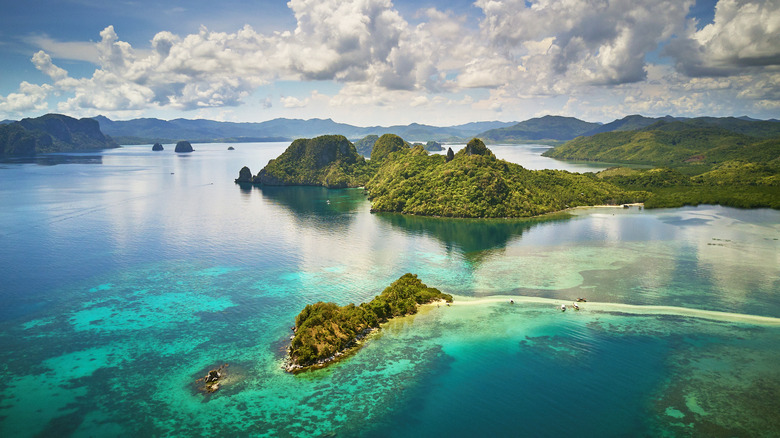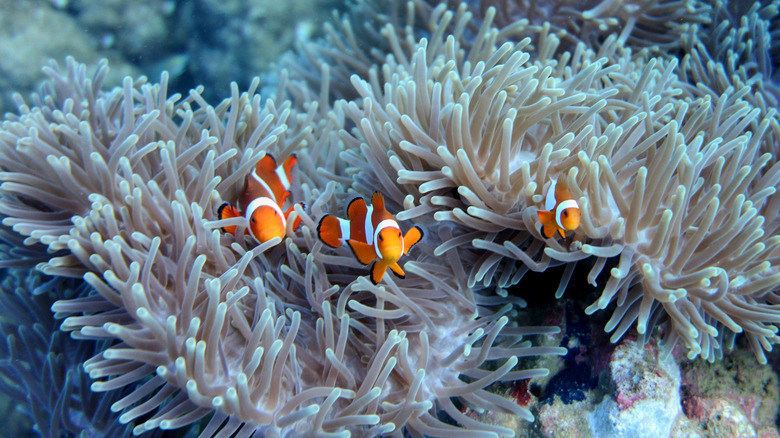Diving deeper into Palawan
Sure, Palawan might be lesser known than its neighbors — but that’s exactly what makes it so special. After all, this relative anonymity means fewer crowds, and a chance to hit up underwater sites that are unspoiled, intimate, and rich in marine life.
In terms of choosing where to go, there are several destinations you’ll want to keep on your radar. First, El Nido Bay is a haven brimming with wildlife, colorful reefs, and tranquil waters that are suitable for beginners — all set against a backdrop of sandy beaches. Over in Honda Bay, close to Puerto Princesa, the water is also teeming with wildlife with dive depths ranging from 33 to 131 feet that are suitable for all levels. All the way to the north, Coron Island promises a mix of history with its sunken shipwrecks and underwater caves that transform any dive into a true adventure. Lastly, there’s the Tubbataha Reef. Located in Tubbataha Ree National Park, the area is a UNESCO World Heritage Site that’s home to incredible diving experiences and pristine coral gardens.
As for the wildlife you might encounter at these dive spots, you can expect to see everything from manta rays to green turtles, barracudas, moray eels, wrasses, dugongs, octopi, and the occasional whitetip reef shark casually swimming past you. These, coupled with swarms of tropical fish — think lionfish, snappers, scorpionfish, clownfish, parrotfish, and more — will come together to make your dive extra colorful and lively.
Your guide to diving in Palawan

Interested in diving around Palawan but don’t have the certification to do it? No worries. There are currently more than 30 PADI-approved diving courses in Palawan that range from a beginner open water certification to advanced open water courses and even rescue dive qualifications. These can cost anywhere from $300 to $450. Additionally, most beginner courses will take roughly three days and include a couple of dives to help you get used to the equipment, understand buoyancy control, and familiarize yourself with underwater communication while actually being in the water.
Keep in mind that when it comes to optimal diving conditions and pleasant weather, a great time to visit Palawan is between October and May. During these months, the weather isn’t too hot, the seas are calm, visibility is at its peak, and marine life is abundantly active, which will make your diving experience truly exceptional.
If all this has you ready to pack your bags, getting to Palawan should be pretty straightforward. If you’re already in the Philippines, direct flights from major cities like Manila are available through airlines like Cebu Pacific, Philippines AirAsia and PAL Express. Traveling from the United States? Most major airlines will have connecting flights to Palawan and into Puerto Princesa. Once in Palawan, hopping between diving destinations is also a breeze. Many local tour offices will help you with everything you need to organize a visit to these diving locations.

